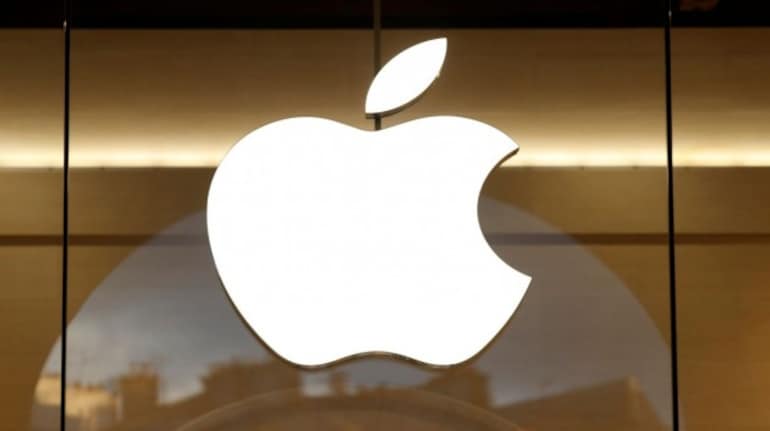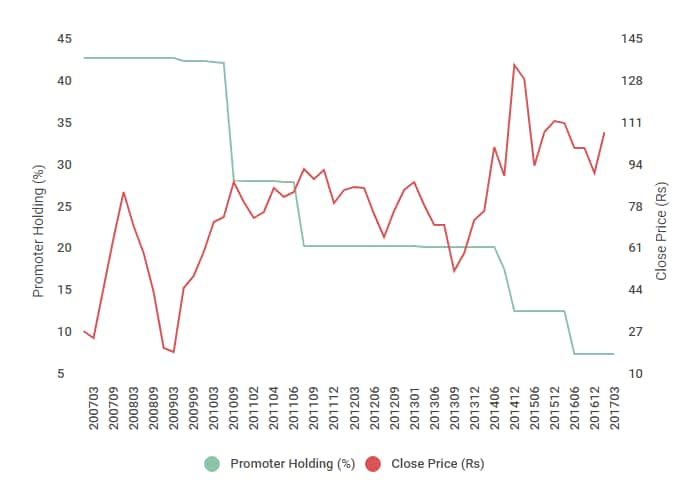
Shishir AsthanaMoneycontrol Research
Many analysts track promoter behaviour which is reflected through their purchase and sale of shares in their company. A promoter increasing his stake in the business is considered a positive sign as it reflects his confidence in the business. On the other hand, a company where the promoter is selling his stake, is viewed negatively.
Infosys is a classic case in point where the promoters continuously reduced their holding in the company and progressively took a hands-off approach from day-to-day running of the business. However, even when a professional management has been put in place the promoters continue to do back-seat driving in their erstwhile company. As a result the morale of the employees has taken a hit while the key management’s bandwidth is utilized in trying to pacify the promoters' ego. Reduction in promoters' stake also coincided with the changing dynamics of the IT industry globally.
Reduction of promoters' stake might be on account of various reasons. A small reduction in their holdings can at times be ignored as the promoter might want to encash a part of his stake. But when a sizeable chunk of promoter’s stake is sold, it is time to sit up and check what is happening in the company.
Apple product’s distributor in India, Redington Ltd’s promoter Harrow Investments has sold nearly 4.98 percent of their stake in the company at one go. This stake sale has reduced promoter holding in the company to a mere 3.22 percent.
While the fact that the promoter has sold 61 percent of its holding in a year is shocking enough, what is more important is that sale has been going on since 2010.
The company’s promoter held 52.45 percent of stake in the company which has now come down to 3.22 percent.
These shares sold by the promoters have been picked up by financial institutions and mutual funds. Even the shares that were sold on Thursday were picked up by Norges Bank, Reliance Mutual Fund and Enam Group.
For an investor does it then make sense to hold on to the company or buy afresh if the promoter has almost sold off their holding.
In an interaction with Moneycontrol, Redington's management pointed out that the promoters have been like private equity players who were not involved in the running of the company. In fact the 'promoters' never had any board representation.
Redington is the sole listed distributor for Apple products in India and has another arm which deals with other IT products and mobile handsets. Financially speaking, the company which posted a consolidated turnover of Rs 13,757 crore in FY10 and a profit of Rs 184.crore increased it to Rs 35,429.65 crore in revenue and Rs 425.66 crore profit in FY16. Revenue grew a tad faster than profits during this period.
Operating margin has more or less been flat, though has a negative slope over the years. Operating margin stood at 2.51 percent in FY10 which touched a peak of 2.93 percent in FY12 but came down to 2.24 percent in FY16.
GST has been a big positive for the company as it can consolidate its warehouses and distribution network.
However, the company is now looking at growth from non-traditional business. In its analyst meet the company has indicated that new businesses will contribute to its growth, margin and improvement in return ratios. The company intends to get into rooftop solar and medical and health equipment.
A question that will be in investors mind is why the erstwhile promoter, even if he is a private equity player, completely exited from the company. If the future is so promising why does a private equity player, whose sole intention is profits exit from the company?
Only future performances will justify the traditional wisdom to stay away from companies where promoters are selling or believing in the promoter’s commentary and holding on.
Discover the latest Business News, Sensex, and Nifty updates. Obtain Personal Finance insights, tax queries, and expert opinions on Moneycontrol or download the Moneycontrol App to stay updated!
Find the best of Al News in one place, specially curated for you every weekend.
Stay on top of the latest tech trends and biggest startup news.